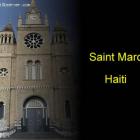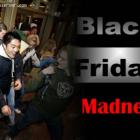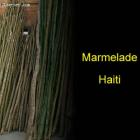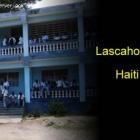ADVERTISEMENT
massacre - Haiti Observer Blog
massacre, Haiti Observer Blog. Read the following articles about massacre
The Sacrilege of the St. Jean Bosco Massacre targeting Jean-Bertrand Aristide
The St. Jean Bosco Massacre in Port-au-Prince occurred on September 11, 1988, in which 13 to 50 parishioners were slaughtered, according to varying sources, and the church burnt to the ground. At the time Jean-Bertrand Aristide, a Roman Catholic priest of the Salesians of the Don Bosco order, was saying mass, when the building was rushed by terrorists. Protectors hurried Aristide out of the church to a barricaded residence in one of the outlying church buildings.
The St. Jean Bosco Massacre was not the first time or last Aristide's life would be endangered. He'd already defied six or more attempts on his life, since in 1985 a mass he celebrated incited surfacing tensions, which presaged the coup of Jean-Claude Duvaliers's dictatorship. Following the massacre, the Inter-American Commission on Human Rights reported that a group of participants in the massacre appeared on Télé Nationale, Haiti's government-owned television station, and promised a 'heap of corpses' at any mass that Aristide celebrated.
April 26 1963, Jean-Claude Duvalier at College Bird and the massacre
April 26th is an infamous day in Haiti's history. Two events of senseless violence, 23 years apart, occurred on that date. In 1963, mass killings of soldiers and their loved ones by Haitian National Police (HNP) were ordered by François Duvalier, in advance of son Jean-Claude's planned abduction. In 1986 at a commemoration to honor victims and families' murders and maiming, another mass killing occurred.
The father-son Duvalier regime was one of the cruelest in Haiti's history. Blood-thirsty monster François dispatched death squads, the Ton-Ton Macoutes, to kill any citizen suspected of being opposed to his government. People would sometimes disappear at night, never to be seen again. Others were murdered in plain sight of a terrified public. When François received word oppositional factions of the HNP were planning to kidnap son, Jean-Claude, he took swift and retaliatory action. His police torched occupied family homes. In other instances, they separated children from families, imprisoning relatives, tormenting and murdering them.
Human Rights Attorney Mario Joseph
Haitian-American human rights attorney and Director of Bureau des Avocats Internationaux (BAI), Mario Joseph, provides legal services for those incarcerated for speaking out against the government of Haiti (GOH). He also goes to bat for impoverished Haitians and citizens harmed because of their political beliefs.
Mario Joseph earned his university degree from École Normale Supérieure and studied at Gonaïves Law School. He began his career as human rights counsel for the Peace and Justice Commission of the Catholic Church. In 1996, he became a member of BAI.
Joseph's most significant case was the Raboteau Massacre trial, in which he was lead counsel, representing survivors of the event. The six-week trial ended with 53 convictions and punitive damages of $43 million USD, assessed against the offenders. Joseph did not stop with the Haitian convictions. He assisted the Center of Justice and Accountability to try other instigators involved in the Raboteau Massacre in the U.S. judicial system.
US occupation of Haiti from 1915 to 1934
The US occupation of Haiti from 1915 to 1934 was US response to near-anarchy in Haiti. It was during this period that US took complete control of the nation and ran the economy, installed puppet governments and controlled every aspect of the nation including police and military. Haitians did not like this and neither did US citizens and the US troops that were deployed in Haiti. Eventually, in 1934, United States withdrew its personnel from the Republic of Haiti.
THE PAST
Haiti earned its independence in 1804 from France but the following century was a period of utter chaos and dictatorship. From 1908 to 1915, at least 7 men became President of Haiti but only to meet a gruesome end. During the same century, US was busy expanding its influence in the Caribbean and by 1914, US was actually interfered with Dominica Republic that shared Hispaniola Island with Haiti. It was in 1914 that US opened the Panama Canal that was both militarily and strategically of high strategic value.
Ruelle Vaillant Massacre
With the active complicity of Haiti's armed forces, the paramilitary neo-Duvalier sabotaged post Duvalier's first ballot. The country would be able to select leaders democratically by this ballot. In Port-au-Prince at the Ruelle Vaillant alley 20 voters were sadly murdered.
Effect of the Terror Wave
The terror wave or a thunderbolt from the sky on 29th November 1987 affected the Artibonite and other departments. This massacre announced the country's general context of 26th April 1986 or in 22nd June 1987 to 29th November 1987.
General Henri Namphy, chairman of the National Council of Government was not in favor of the electoral process. Through different measures he demonstrated this which escaped the Army's control. He got his own writ published on 22nd June 1987 by ignoring the 1987 constitution.
Our objective is to share with you news and information about Haiti and the people of Haiti. Traditions, habits and the way we were or grew are alive in this site. We highly recommend that you Subscribe to our Newsletter and also share with us some of the things that are memorable and made us unique people.

 Saint Marc, Haiti
Saint Marc, Haiti  Black Friday Shopping Season
Black Friday Shopping Season  Marmelade, Haiti
Marmelade, Haiti  Life After Death
Life After Death  Lascahobas, Haiti
Lascahobas, Haiti